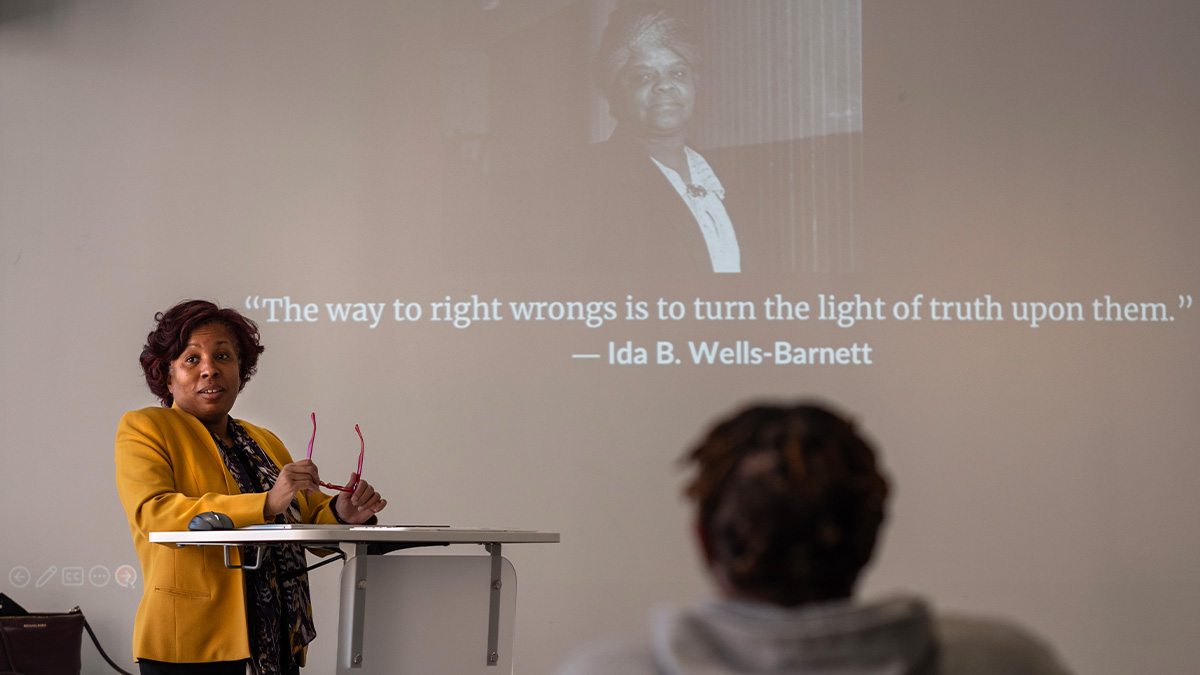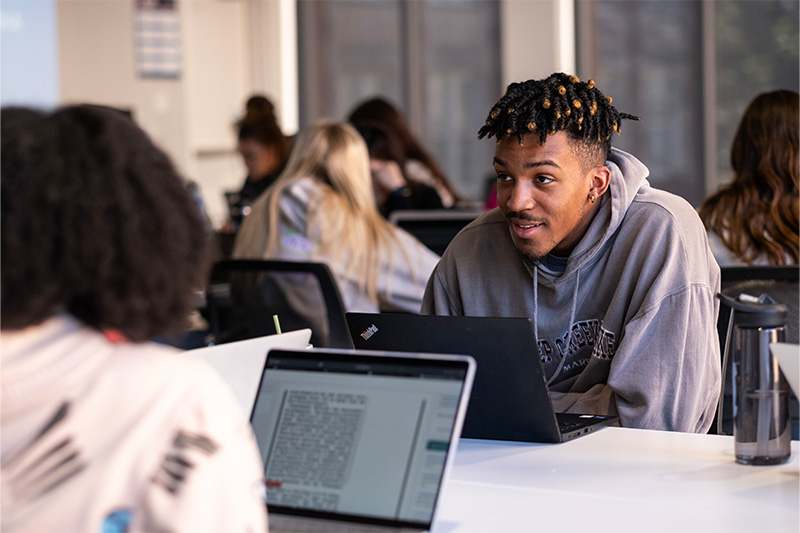Hussman course uses Black press to teach US history
Trevy McDonald’s class shows the value of these “eyewitnesses to history” who fought for civil rights.

Trevy McDonald, the daughter of two “news junkies,” was sold on the power of the Black press at a young age. When she was in a sixth grade play, her photo appeared in the Chicago Defender, one of the nation’s premier Black newspapers.
That helped spur a passion for the Black press that’s followed her through her career. Since 2013, she’s taught MEJO 342: The Black Press and U.S. History, at the Hussman School of Journalism and Media.
The course examines both historic events and time periods and the role Black journalists played in covering – and shaping – them.
“I see primary sources as the blueprint for history,” McDonald said. “I see the journalists who cover these stories as the eyewitnesses to history, reporting what they’ve seen and what they’ve experienced and reporting what people they interview have seen and witnessed.”
Students learn about people who fought for civil rights and brought injustices to light. There’s Ida B. Wells, the trailblazing editor of the Memphis Free Speech, who bravely investigated lynchings and dispelled myths about Black men targeting white women. McDonald also teaches about Black newspaper publishers like Robert Abbott and Jefferson Edmonds and how they used their platforms in Chicago and Los Angeles, respectively, to encourage African Americans to leave the Jim Crow South.
“When I think of the Black press, it was really an advocacy press,” said McDonald.
The advocacy seen in the Black press is very different from coverage of the same issues in mainstream white publications. In many of those outlets, the troubles of Black Americans were either ignored or, in some cases, celebrated.
In one class activity, students researched the type of language and tone used in various mainstream U.S. newspapers to describe lynchings. One student reported finding a Nashville Daily American article that described a specific lynching as “great” and “exciting” and said citizens should celebrate the suspect.
“Already early in the class, I’ve seen it’s a lot more subjectivity with everything,” said Ericsson Moncree, a sophomore advertising and public relations student. “Because in newspapers, a lot of times, it’s opinion … While you’re reading a newspaper, you can hear if someone has a bias toward or against someone, or if someone has beef with an idea.”
Moncree wanted to take a class on Black history and was drawn to the course because of its research and journalism components. As part of the class, he and his classmates analyze how a particular era or topic was covered by Black newspapers.
“It makes things feel more real. Because with textbooks, you can kind of forget these are actually human beings doing stuff,” said Moncree, whose analysis focused on colonization in Liberia.

Ericsson Moncree said he’s learned how opinionated newspaper coverage of various topics was. (Jon Gardiner/UNC-Chapel Hill)
McDonald likes to end classes with a million dollar question for students. One day she asked what Mary Ann Shadd Cary – the first Black woman to publish a newspaper in North America and someone fond of saying, “We should do more and talk less” – would think of modern-day race relations and the state of media.
One student answered with a question of her own: Would Cary be a fan of social media and the way it can amplify messaging to the masses or would she view it as a way of talking more and doing less?
The thoughtful response made McDonald smile, a clue to how she’d answer this million dollar question: What makes you feel validated as a professor of the Black press?
“I think seeing them learn about topics they wouldn’t have ever learned about if they hadn’t taken this elective and getting new insights.”







